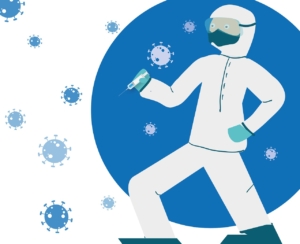Boos, boosts and booze infuse German news – English word boostern wins a prize
 The English word boostern has just won a coveted prize, unexpectedly being chosen as Germany’s 2021 Anglicism of the year after going viral in Germany – despite not being an English word. How did this happen?
The English word boostern has just won a coveted prize, unexpectedly being chosen as Germany’s 2021 Anglicism of the year after going viral in Germany – despite not being an English word. How did this happen?
The English verb to boost means to assist or encourage something to grow or rise, and also serves as a noun meaning something which, usually deliberately, helps something else increase or rise. So the space race saw the introduction of booster rockets, and child car safety regulations saw the introduction of booster seats to raise small children to the minimum height for safety belts. But boosting also has a more political and ambiguous dimension dating to nineteenth century North America, yet resonating in the scandals in the UK in 2022.
The Covid 19 crisis saw the rapid introduction of new vaccines, and then in 2021 the introduction of an additional injection to boost the immunity of those already vaccinated, promptly called a “booster”, short for booster shot. People speak of getting the booster, or having had the booster; there is no single verb to describe receiving the booster, and no single adjective either – while people speak of being vaccinated, they do not in this case speak of being boosted.
In the UK in 2021 and 2022, Prime Minister Boris Johnson found himself at the centre of scandals and even boos after revelations about covert boozy Covid gatherings, held in defiance of national regulations. Johnson’s blustering response to the public and press has often been unsympathetically characterised as boosterism, implying his words were intended to distract by talking up potential projects. Boosterism originally referred to the somewhat exaggerated self promotion efforts of small towns in the USA and is a characteristic of the doomed central character in Sinclair Lewis’s 1922 novel Babbit, which follows an upstanding citizen of small town middle America as he descends into a boozy mid-life crisis and cavorts with flappers in the roaring twenties.
In German “to receive the booster injection” would translate as three words, one a lengthy compound noun, namely “eine Auffrischungsimpfung erhalten”. The German language can form verbs by adding the suffix -n, -en, or -ieren to the end of a word, so the English noun booster has become the German verb boostern, efficiently conveying in one word “to get the booster”. Will this word’s other shades of meaning lurking in English make the journey into German, with scores of selfie-snapping influencers hoping to “boost earn” by a boostern campaign to boost their marketing reach? Or will boosterism become a new political doctrine?




